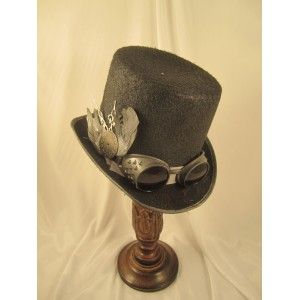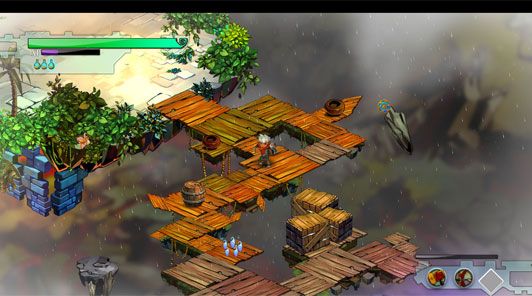
Participating in the Terribleminds Second Game of Aspects.
One hundred and fifty years of spaceflight innovation, and it’s still a pain in the ass to get a decent meal.
Commander Ellington grumbled softly as he pulled himself towards the galley. He remembered times back home when just a whiff of his mother’s home cooking would make his stomach growl like a hungry lion.
“What’s on the menu today, Slim?”
The technical expert of the construction crew was actually named Vladimir Moroshkin, but being skinny as a beanpole, Ellington had taken to calling him ‘Slim’. The physicist didn’t seem to mind.
“The same as before, Commander. Pre-cooked meats of a dubious nature and recycled water it’s best not to contemplate too long.”
“What I wouldn’t give for some decent chili.” He sighed, popping a meal in the microheater. “How’re things out there?”
Slim looked out the porthole at the in-construction Pluto gate. “Main structure is 90% complete, components are in place, and capacitors are holding charges. Crews probably need another few days to get the toll systems and registration servers talking to the relays.”
Ellington nodded. “Once it’s done we’ll have gates in orbit around Earth, Mars, Venus, Europa, Titan… am I missing any?”
“They just finished the Triton gate, sir.”
“That’s gonna make booking flights confusing. Anyway, where do we go from here, d’you think?”
“We’ll probably have to break the light barrier properly to go further. Properly, I mean. Not with artificial wormholes.”
“Does it ever bother you, ripping holes in space the way we do, just to travel more quickly from one place to another?”
“No, sir. The technology that powers the gates is completely-”
Before Slim could finish his sentence, the station shook. Supplies went flying from the galley shelves. As warning klaxons started going off, Ellington propelled himself to the main console of the small station. Slim was right behind him.
“Did something hit us?” Ellington asked as he scanned the instruments for hull breaches and other damage.
“Nothing solid. Looks like it was a shock wave. Suit comms are down.”
“A shock wave from what, Slim?”
Ellington looked up and got his answer.
In the silent, dark tapestry outside, a violet fissure had appeared. It glowed, blotting out the stars behind it. As Ellington watched, tentacles colored a green so deep it was nearly black wormed out of the fissure and began to push it wide. He glanced at the gate, seeing the men scatter. Looking back, more tentacles appeared, and within the void past the tear in space, Ellington saw piss-colored eyes. Ancient eyes. Eyes full of hunger and hate.
“Slim… tell me what I’m seeing.”
“The instruments are going haywire, sir. I need a moment.”
“Not sure you’ve got one.” As Slim watched, the thing in the fissure lashed out at the gate, swatting men and women in space suits aside as they tried to return to the station. They were unarmed, and their only means of escape was the ion-powered rocket that could get them to Triton and the gate there could get them home. The journey would be short, as Pluto’s orbit this year was closer to Neptune than it had been in decades, which was why the eggheads back home decided to move forward with building the gate.
Not that it would matter if the horror pulling itself into reality could also travel through the gates.
“Can you tell me anything about the fissure?”
“Near as I can tell, it’s putting off a frequency of radiation I’ve never seen before. Radio telescope was the first instrument to zero in on it.”
“Let’s hear it.”
Reluctantly, Slim flipped the external speaker switch. The control cabin was immediately filled with screaming. If it had been one voice screaming, it would have just been disconcerting. Instead, Slim and Ellington heard a thousand voices, all crying out at once without words, deeply in pain and endlessly, endlessly angry.
“Right. Time to get the hell out of here.”
Ellington turned and went down the central shaft of the station to where the shuttle was docked. He slid inside and did a quick check of its systems, making sure it hadn’t been damaged. He caught glimpses of the creature out the windows, but tried to ignore it. He stopped, however, when he saw the gate’s capacitors lighting up. He moved back to the shaft and kicked off of the deck, propelling himself back to the control cabin where he seized a handhold.
“What the hell are you doing, Slim?”
“If I can get the gate to generate a sympathetic counterpoint vibratory radiation pattern…”
“English, Slim.”
“I think I can use the gate to close the fissure, sir.”
Ellington stared, then looked outside. The thing was even more massive than he’d thought, and it looked like it was still emerging from the fissure. It could easily reach the station with its tentacles, and Ellington feared one would collide with them any moment. He heard people in the upper reaches of the station, clamoring about, probably eager to leave. He didn’t blame them.
Slim twisted knobs, tapped in commands via keyboard, and finally pulled a lever. The gate sprang to life. Instead of the usual blue color, the capacitors glowed an angry red. Soon the entire gate was alive with that shade, and the radio telescope conveyed a sound that drowned out the screaming.
It was a single, reptilian, very pissed-off roar.
“Slim? What did you do?”
“Exactly what I said! I don’t…”
From the gate emerged a head that could have belonged to some sort of dinosaur. It was topped with ridges of horns, its scales were the color of blood, and when it exhaled (wait, exhalation in space?) plumes of fire shot from its nostrils. Seeing the abomination in the fissure, it shot out of the gate, spreading leathery wings and reaching out with talons easily as long as Slim was tall. It grappled with the tentacled monstrosity and opened its mouth. Flames washed over the fissure.
“Slim?”
“Yes, sir?”
“I have a craving for popcorn.”





